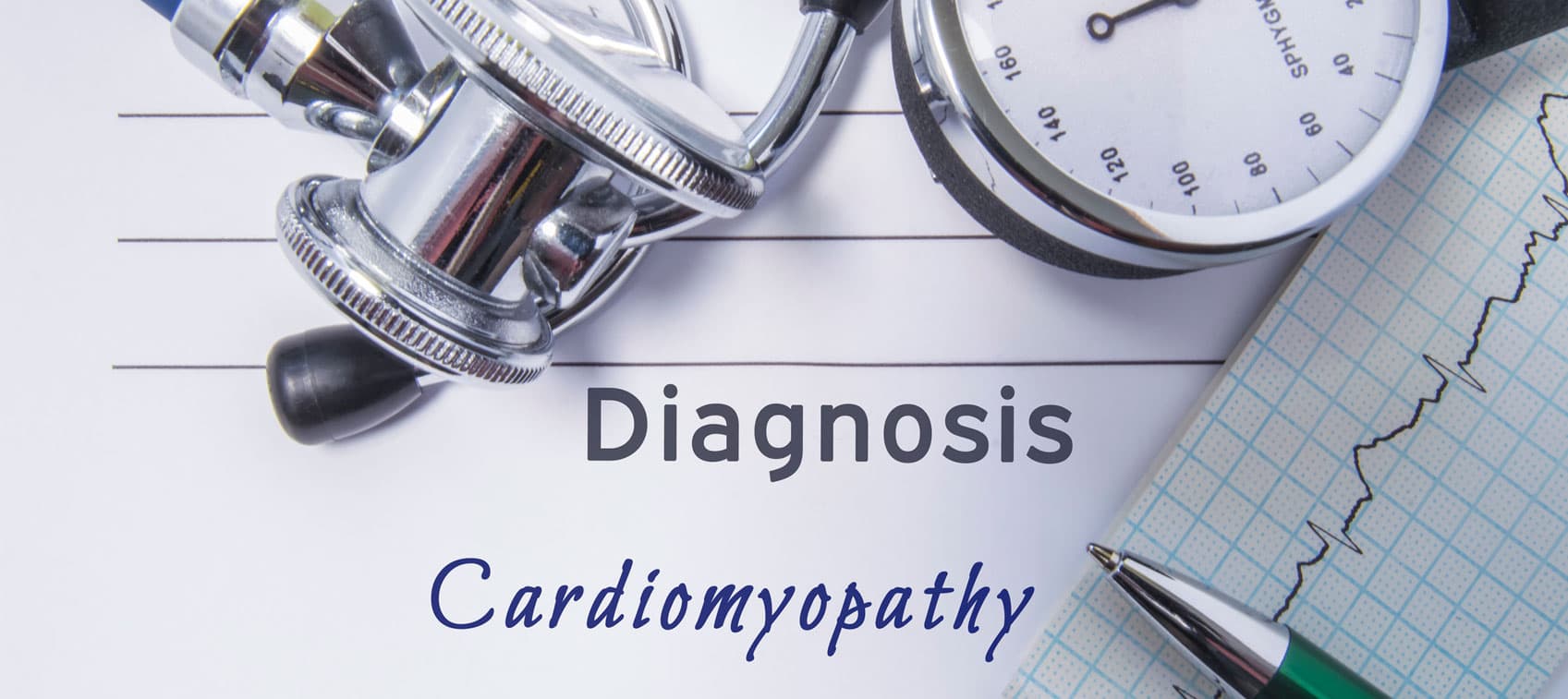
Heart failure is on the rise. Although the death rate from coronary artery disease decreased by 15 percent from 2011 to 2017, heart failure increased by more than 20 percent. It is now our 8th leading cause of death and figures into more than half of all heart disease deaths.
Why the alarming jump in just six years? It’s partly due to the graying of the American population. The 65+ age group grew by 23 percent—from 41 to nearly 51 million—during that time, and heart failure is most common in older people.
But there’s another contributor, one that goes hand-in-hand with our skyrocketing rates of diabetes and obesity: diabetic cardiomyopathy.
What Is Diabetic Cardiomyopathy?
“Cardiomyopathy” was coined in the 1950s from the Greek words meaning heart muscle disease. Common causes include long-standing hypertension, damage from previous heart attacks, valve problems, and infections that affect the heart. Diabetic cardiomyopathy is diagnosed in individuals whose only risk factor is diabetes.
Diabetes is hard on all organs and tissues, and the heart is no exception. Insulin resistance and elevated levels of blood sugar and insulin increase the vulnerability of the heart muscle by ramping up:
- Inflammation
- Oxidative stress
- Blood vessel damage
- Autonomic neuropathy (damage to cardiac nerves)
- Mitochondrial dysfunction
- Advanced glycation endproducts (AGEs)
- Cardiac cell death
Why It Matters
These metabolic abnormalities trigger cellular and structural changes that promote stiffness, enlargement, weakness, and dysfunction of the heart muscle. Over time, diabetic cardiomyopathy may progress to heart failure—and that’s when the real problems begin.
Picture your heart and blood vessels as a plumbing system transporting blood throughout your body. Heart failure is a malfunction of the pump. Too stiff to relax and fill with blood or too weak to squeeze blood out with adequate force, the failing heart cannot pump enough blood to meet the body’s needs.
Heart failure is a serious condition, and diabetic cardiomyopathy dramatically increases risk. People with diabetes are twice as likely to develop heart failure as those without it, and 44 percent of patients hospitalized with heart failure have diabetes.
Diabetic Cardiomyopathy Symptoms
Although diabetic cardiomyopathy goes unnoticed in early stages, the following signs and symptoms may appear as heart damage progresses:
- Fatigue and weakness
- Breathing difficulties and shortness of breath, with or without exertion
- Irregular heartbeat
- Edema (swelling) in the feet, ankles, and legs
- Abdominal bloating
- Lightheadedness
- Fainting
- High blood pressure
- Low ejection fraction, a measure of the heart’s pumping ability as determined by echocardiogram (ultrasound of the heart)
Safe, Effective Treatments
Of course you should work with your doctor if you have any of these signs or symptoms, but I recommend these alternative diabetic cardiomyopathy treatments as well:
- Blood sugar control. Controlling your diabetes will curb further damage to the heart. Berberine and other natural blood sugar-lowering therapies are a viable alternative to diabetes drugs.
- Weight loss. Maintaining a healthy weight reduces the risk and burden of diabetes, diabetic cardiomyopathy, and heart failure.
- Diet. Adopt a nutrient-dense diet with adequate protein and limited refined carbohydrates. Lowering sodium and increasing potassium intake is also advised.
- Exercise. Although advanced diabetic cardiomyopathy may limit physical activity, get as much exercise as you can.
- Sleep apnea treatment. Sleep apnea is a risk factor for heart failure and should be tested for and treated.
- EECP (enhanced external counterpulsation). For more serious disease, consider a course of EECP, a noninvasive therapy that reduces the heart’s workload and improves heart function, exercise capacity, and quality of life.
- Testosterone. Research suggests that this anabolic (muscle-building) hormone has a role in the prevention and treatment of heart failure and other cardiovascular diseases.
I also urge you to be wary of cholesterol-lowering statin drugs. Several studies have implicated long-term statin use in heart failure.
Re-energize the Heart With Supplements
A diseased heart muscle, sapped of strength and vitality, is in dire need of an energy boost. These nutritional supplements supply the heart and other tissues with nutrients required for the production of ATP, the energy that fuels our cells.
- Coenzyme Q10 (CoQ10): 100–300 mg daily. Supplemental CoQ10 is essential for anyone with diabetic cardiomyopathy. In addition to increasing cellular energy, supplemental CoQ10 also improves outcomes in patients with moderate to severe heart failure (fewer deaths, hospitalizations, and cardiovascular events).
- L-carnitine: 1,000 mg 2–3 times a day. L-carnitine shuttles fatty acids into the mitochondria, where they are burned for energy. Declining levels in the cardiac muscle are linked with increasing severity of heart failure.
- Magnesium: 400–500 mg per day. Boosting levels of this important mineral, which are consistently low in patients with diabetes and heart failure, provides a wealth of cardiovascular benefits.
- Other essential nutrients. A daily multivitamin and mineral supplement with therapeutic levels of antioxidants, B vitamins, and selenium, plus omega-3 fatty acids and extra vitamin D help meet the extra nutritional needs of an overworked heart.
Deal With Diabetic Cardiomyopathy Today
Life expectancy in the US has declined for the third year in a row, and one of the reasons for the unprecedented surge in heart failure. Deal with diabetic cardiomyopathy today—so you won’t have to deal with full-blown heart failure in the future.


